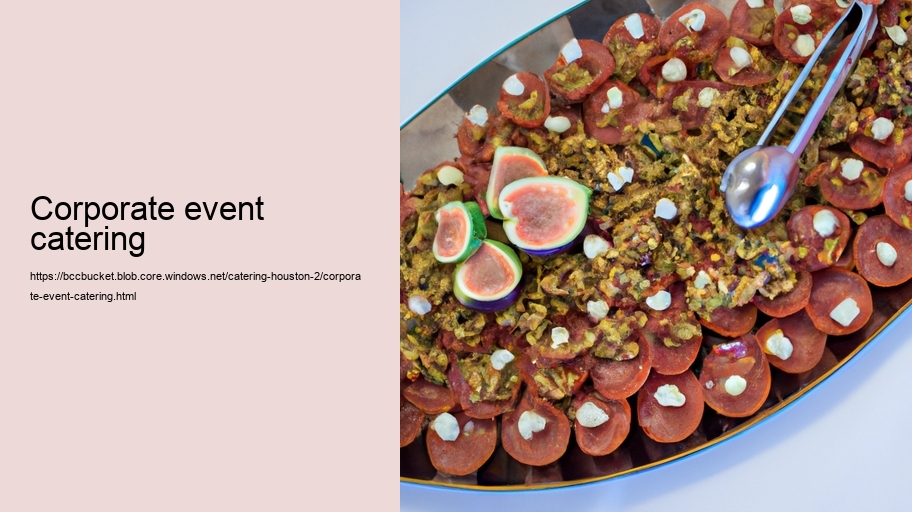Corporate event catering is an essential facet of the business world, often serving as the culinary backbone to a wide array of gatherings from small meetings and workshops to large-scale conventions and galas. This specialized service not only satisfies the basic need for sustenance among attendees but also has the potential to elevate the entire experience, reflecting a company's professionalism, attention to detail, and commitment to excellence.
At its core, corporate event catering revolves around providing food and beverage services tailored to suit the specific needs of a professional event. The importance of catering cannot be overstated; it can set the tone for an event, help facilitate networking by creating a comfortable social environment, and leave a lasting impression on guests. Caterers must be able to adapt their offerings to various dietary restrictions, preferences, and cultural norms while ensuring that their service contributes positively to the overall ambiance of the occasion.
One might wonder what distinguishes corporate event catering from other types of catering services. The main difference lies in understanding that such events are typically more formal and structured than private celebrations like weddings or birthday parties. Corporate events require punctuality, precision in presentation, and seamless service execution due mainly to their professional nature and often tight schedules.
The planning process begins with identifying the goals and themes of an event which dictate many aspects of catering—from menu creation to table settings. For instance, if a company is hosting an international conference with diverse participants from across the globe, offering a cosmopolitan menu that features an assortment of cuisines can be both respectful and engaging for guests.
Menu planning also takes into account several logistical considerations: How will food be served—buffet-style or plated? Will there be passed hors d'oeuvres during networking sessions? Is there need for action stations where dishes are prepared on-the-spot? These choices impact not just guest experience but also requirements in staffing levels, equipment rentals, space allocation within venues, timing sequences throughout events—all details that must harmonize perfectly.
Moreover, sustainability is now integral within corporate social responsibility agendas. Thus modern corporate catering increasingly includes sustainable practices like sourcing local ingredients whenever possible; minimizing waste through careful planning; providing vegetarian or vegan options; using biodegradable or recyclable serviceware; even reducing carbon footprint through thoughtful logistics planning.
Accommodating special dietary needs has become standard practice as well—gluten-free menus for those with celiac disease or gluten intolerance; nut-free environments when allergies are reported; halal or kosher meals respecting religious observances all demonstrate inclusivity which reflects well on any host organization’s reputation.
Professional caterers bring more than just delectable cuisine—they provide expertise in hospitality management ensuring every aspect associated with dining runs smoothly so clients can focus on other crucial elements during their gatherings without having concerns about attendee satisfaction relating directly back to meal times.
In summary, corporate event caterers play a pivotal role in enhancing overall experiences at professional functions through strategic menu planning fitting both palate pleasures and thematic purposes alongside delivering efficient operations handling everything related kitchen logistics front-of-house activities alike – all while adhering strictly budgets deadlines alike - thus proving themselves vital partners success any organized affair within business circles today.
